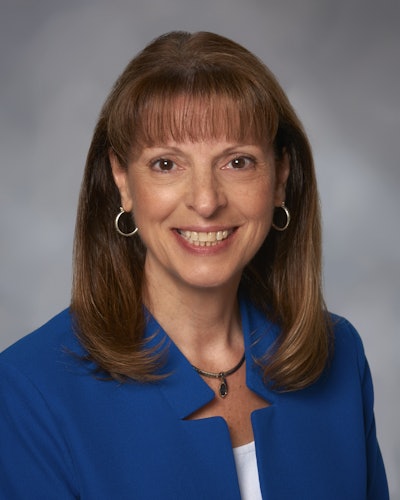Dr. Diana M. Doyle, president of Colorado’s Arapahoe Community College (ACC), has strategically navigated the impact of the pandemic, calling on her 43 years of experience in higher education.
Doyle has been the president of ACC for the past 11 years, and, when she retires at the end of this academic year, she will do so with a sense of accomplishment and contentment.
 Dr. Diana M. Doyle
Dr. Diana M. Doyle“To make a real difference for student success and employee success requires knowing that it takes a team effort,” says Doyle, whose doctorate is in public administration. “It has to be a collaboration between administrators, faculty, community members and employers — everybody working together to ensure that we’re providing relevancy for the communities that we serve.”
In a typical school year, ACC serves more than 20,000 credit and non-credit students across three campuses in the Greater Denver Metropolitan area. Doyle was behind the building of a new state-of-the-art Collaboration Campus in partnership with the Sturm Family Foundation, Colorado State University and the Douglas School District.
Doyle started her higher education career as a residence hall director at Illinois State University, which she says was excellent training for everything that came after because it involved conflict management, supervision and being adaptable. The first 20 years of her career were at universities, but once she had her first community college position, she fell in love with the mission.
“We provide opportunity for everyone who wants to learn, and that fits very well with my own philosophy in education,” Doyle says. “It’s about understanding who your students are and what their needs and obstacles are.”
Dr. Lisa Matye Edwards, ACC vice president of student affairs, says Doyle has supported the work of student affairs “in all ways.” From making sure the department has the resources it needs to thinking creatively about how to meet the vast needs of today’s community college students, Doyle has been involved.
“[During the pandemic] there was a comfort of having a leader that knew the college, the people and the students and was able to help us plan and
 Dr. Diana Doyle with Colorado Community College System Chancellor Joe Garcia.
Dr. Diana Doyle with Colorado Community College System Chancellor Joe Garcia.respond in the daily ever-changing landscape and advocate for faculty, staff and students at a statewide level,” says Edwards. “She allowed my staff to be able to do what they needed to do and she trusted us.”
Doyle says she was committed to helping students continue their studies during the pandemic with the least disruption, which included
understanding what students were dealing with in terms of job loss, children homeschooling and family members with COVID-19 — not to mention challenges that faculty, staff and administration were facing. Flexibility became the key word and innovation was crucial.
“We did some quick bootcamps with our faculty and instructors, and that made a big difference,” says Doyle. “We loaned out laptops, iPads and tablets for faculty and instructors who didn’t have technology at home. We beefed up our WiFi in all of our parking lots.”
Edwards says Doyle’s experience in student affairs helped her understand how to best serve the diverse population at a community college, and she applauds her willingness to take risks and innovate. This includes starting a program for students with intellectual, developmental and physical disabilities (Elevate at ACC) in partnership with two four-year institutions.
 Dr. Diana M. Doyle with Arapahoe Community College students.
Dr. Diana M. Doyle with Arapahoe Community College students.Other innovations have included establishing a veterans service center, expanding workforce training and apprenticeship opportunities, creating new science labs and classroom facilities, growing online programming, increasing diversity, equity and inclusion (DEI) initiatives, expanding dual enrollment options for high school students and launching bachelor’s degree programs in nursing, applied science in emergency services administration and advanced paramedic practice.
“We worked with industry, employers and local healthcare providers,” says Doyle. “We worked as a team. We had people in the healthcare arena work with us on developing the curriculum for the programs.”
Doyle developed an inclusive excellence council composed of faculty and staff. After several years of discussions, they developed a mission statement. Ultimately, a chief inclusive excellence officer position was created and the inaugural person hired in 2020.
Following the end of this semester, Doyle is looking forward to doing some traveling and exploring new places. She already has opportunities for consulting on higher education issues and is excited to play a different role and help other institutions reach their goals for excellence.
Her words of wisdom for new presidents are to walk around the campus as often as possible and be purposeful about it.
“You have to get out of your office,” says Doyle. “You need to know about the people, not just the roles that they play, but to know about them personally. … It’s important to make that connection.”
This article originally appeared in the June 24, 2021 edition of Diverse. Read it here.





















